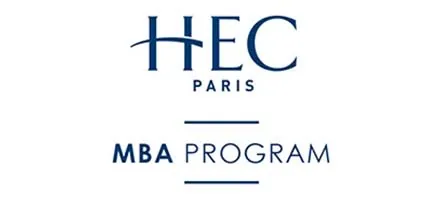
Bloomberg Businessweek’s 2024 MBA ranking is chock full of surprises. Though all rankings seem to contain at least an element of the unexpected, both less than apparent and the obvious.
That Stanford’s MBA program is deemed the best in the U.S. will hardly surprise many. That Harvard deserves to languish in sixth place, behind Chicago, Northwestern, Dartmouth, and the University of Virginia might astonish many. So will the 12-place fall for Columbia Business School which not only places CBS outside the Top Ten but at a rank of 17th, even behind Georgia Tech!
Once again, Yale School of Management Deputy Dean Anjani Jain is raising significant questions about Businessweek‘s methodology. His deep examination of the ranking shows that the weights Businessweek says it used to rank schools were not properly applied.
While Businessweek claims that “compensation” accounts for 37.7% of its ranking, Jain’s analysis finds that the effective weight is much larger: 67.8%. If Businessweek correctly applied its weights, Jain found, Columbia Business School would have been ranked 27th instead of 17th and Wharton would have ranked 17th instead of seven. Businessweek has consistently stood by its ranking, disputing Jain’s findings.
His criticism isn’t isolated, of course. Privately or publicly, business school deans are alternately frustrated or angry over the collective obsession with rankings that are flawed, opaque, highly subjective, and fail to capture the educational experience their schools deliver.
From our own collected knowledge of experience and observation then, here are what we consider the ten biggest surprises in what is the 23rd time that Businessweek has ranked full-time MBA programs.
1) A Big Surprise: Stability In An MBA Ranking?
Rankings are often wild roller-coaster rides for business school deans. Massive declines and big leaps are a regular occurrence in most rankings which should lead users to question the lists, especially when the year-over-year changes at any school are minimal at best. Even so, it’s a given that rankings produce highly variable results from one year to the next.
So it is somewhat surprising that the 2024 Bloomberg Businessweek MBA ranking is incredibly stable. It’s as if the editors at Bloomberg Businessweek put a hand firmly down on the table to limit the tumbles that are ever present in its and every other ranking. Yale’s Anjani Jain pretty much suggests the same in his analysis of the ranking and his finding that Businessweek did not use the weights on its metrics that it claimed. A “consequence of preserving the stakeholder weights would be greater year-to-year volatility in the ranks, which would undermine the ranking’s credibility,” he writes.
This year, just 11% of the schools in the ranking saw a double-digit increase or decrease. Two years ago, 36% of the schools experienced a double-digit change in this ranking. Back then, 18 MBA programs rose by double-digits, compared to just four this year. A dozen programs plummeted in double-digits in 2021, compared to the four that rose by that amount this year.
Of course, this finding would not relieve any of the frustration deans feel if their MBA program was on the downside of this ranking. Among the schools that remained on the list and didn’t fall off entirely, UC-Davis saw the biggest decline, a drop of 26 places to rank 69th from 43rd last year. Rutgers Business School declined by 15 spots to rank 59th from 44th, while the University of Southern California’s Marshall School of Business plunged 13 places to rank 30th from 17th.
Even more notably, however, was a 12-place drop by Columbia Business School, falling to one of its lowest ranks ever in a major MBA ranking. Bloomberg Businessweek now ranks Columbia’s MBA program 17th best in the U.S., down from fifth place last year, a fall from grace that says much more about Bloomberg Businessweek‘s ranking than it says about the superb quality of the MBA program at Columbia.
Double-Digit Increase & Decreases In The 2024 Bloomberg Businessweek MBA Ranking
| School | Y-O-Y Change | 2024 Rank | 2023 Rank |
|---|---|---|---|
| Ohio State (Fisher) | +13 | 39 | 52 |
| Arizona State (Carey) | +10 | 29 | 39 |
| Tennessee-Knoxville (Haslam) | +10 | 53 | 63 |
| Oklahoma (Price) | +10 | 60 | 70 |
| UC-Davis | -26 | 69 | 43 |
| Rutgers Business School | -15 | 59 | 44 |
| Southern California (Marshall) | -13 | 30 | 17 |
| Columbia Business School | -12 | 17 | 5 |
2) What If This Was A Truly Global Ranking?
This year and every year, Bloomberg Businessweek doesn’t merely do one full-time MBA ranking. It essentially does four lists: one for the U.S., another for Europe, one for Canada, and yet another for Asia-Pacific. And to complicate matters, the methodology for cranking out the U.S. ranking differs markedly from how it approaches non-U.S. MBA programs. Outside the U.S., diversity is not a measured metric which then changes the stated weights on the other criteria used to rank the schools.
Yet, Businessweek does have an overall index score for every ranked MBA program that would essentially allow a user to create from those scores a true global list. What would that look like and would it lead to even greater doubts about this ranking than already exist? You bet.
If you ranked these programs by their index scores, four of the Top Ten would be in Europe, led by IMD in Switzerland, IESE Business School in Barcelona, Spain, SDA Bocconi in Milan, Italy, and London Business School in the United Kingdom. In fact, all four of these schools would rank higher than the Harvard Business School, and IMD would be ahead of Kellogg, Wharton, MIT Sloan, and Dartmouth Tuck among others.
Among the combined Top 25, there are no Canadian or Asian-Pacific schools that would make the Bloomberg Businessweek list. Instead, European players dominate after the U.S. with seven of the programs in Europe and the remaining 18 in the U.S.
For both entertainment value and insight, here’s what it would look like:
A GLOBAL MBA RANKING BASED ON BLOOMBERG BUSINESSWEEK INDEX SCORES
| Global Rank & School | Index Score | Region |
|---|---|---|
| 1. Stanford Graduate School of Business | 88.8 | U.S. |
| 2. University of Chicago (Booth) | 86.2 | U.S. |
| 3. Institute of Management Development (IMD) | 86.1 | Europe |
| 4. IESE Business School | 85.8 | Europe |
| 5. SDA Bocconi | 85.5 | Europe |
| 5. Northwestern University (Kellogg) | 85.5 | U.S. |
| 7. Dartmouth College (Tuck) | 85.4 | U.S. |
| 8. London Business School | 85.2 | Europe |
| 9. University of Virginia (Darden) | 84.8 | U.S. |
| 10. Harvard Business School | 84.2 | U.S. |
| 11. University of Pennsylvania (Wharton) | 84.1 | U.S. |
| 12. University of Michigan (Ross) | 83.9 | U.S. |
| 13. INSEAD | 83.6 | Europe |
| 13. Carnegie Mellon University (Tepper) | 83.9 | U.S. |
| 15. MIT (Sloan) | 83.5 | U.S. |
| 16. Cornell University (Johnson) | 83.3 | U.S. |
| 17. Duke University (Fuqua) | 82.7 | U.S. |
| 17. Yale School of Management | 82.7 | U.S. |
| 19. University of California-Berkeley (Haas) | 82.6 | U.S. |
| 20. New York University (Stern) | 82.3 | U.S. |
| 21. University of St. Gallen | 81.6 | Europe |
| 22. Georgia Institute of Technology (Scheller) | 81.3 | U.S. |
| 23. Columbia Business School | 81.2 | U.S./td> |
| 24. University of California-Los Angeles (Anderson | 81.0 | U.S. |
| 25. Oxford University (Said) | 81.0 | Europe |

Our analysis of the new list which has Stanford on top for the sixth time in a row











